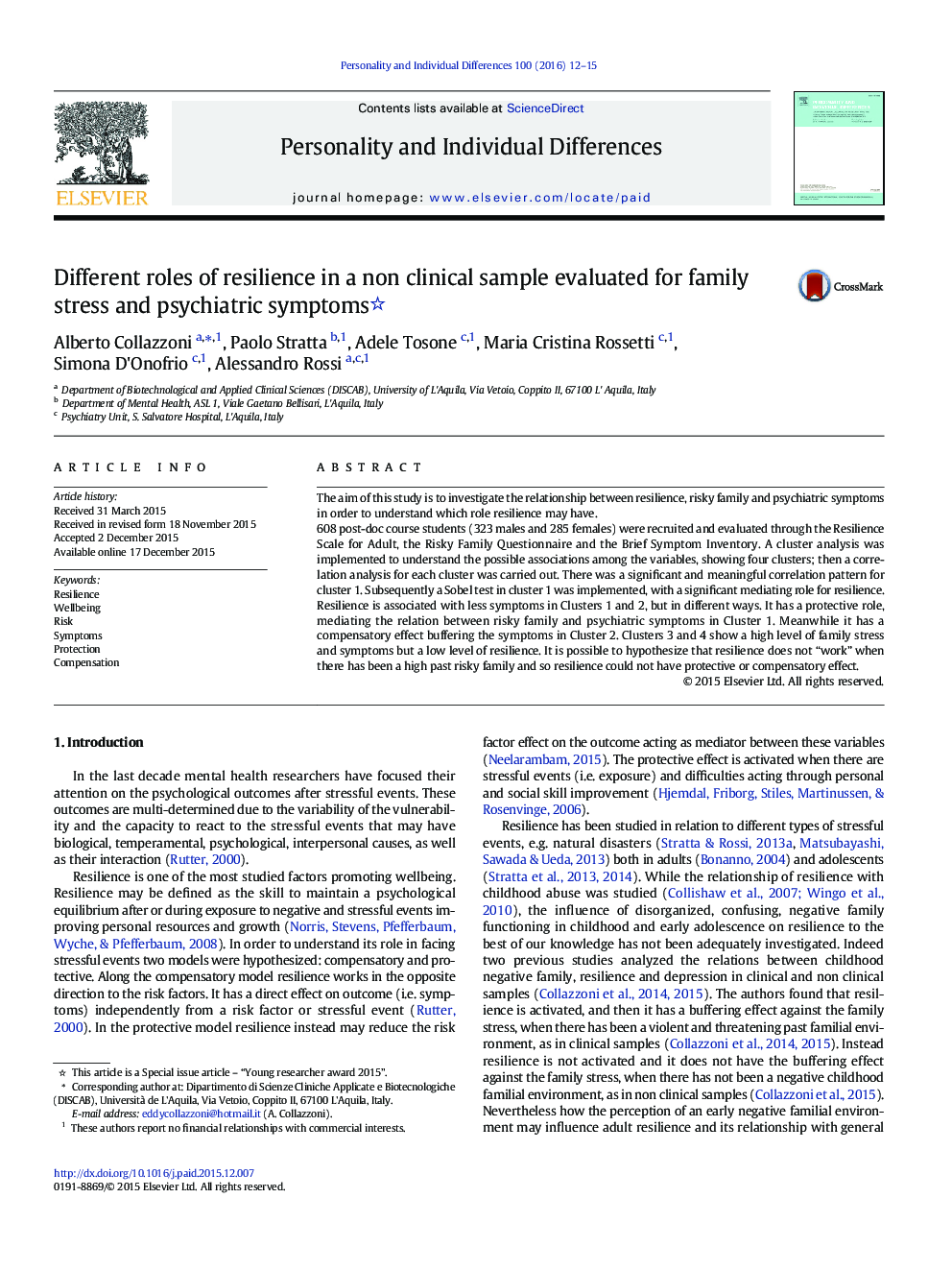| Article ID | Journal | Published Year | Pages | File Type |
|---|---|---|---|---|
| 889618 | Personality and Individual Differences | 2016 | 4 Pages |
•Resilience is a positive factor promoting wellbeing buffering from stress;•Risky family is a favoring factor for psychiatric symptoms in adult age;•Low psychiatric symptoms pass through resilience protective/compensatory pathways;•A high level of negative past family stress may interfere with resilience growth.
The aim of this study is to investigate the relationship between resilience, risky family and psychiatric symptoms in order to understand which role resilience may have.608 post-doc course students (323 males and 285 females) were recruited and evaluated through the Resilience Scale for Adult, the Risky Family Questionnaire and the Brief Symptom Inventory. A cluster analysis was implemented to understand the possible associations among the variables, showing four clusters; then a correlation analysis for each cluster was carried out. There was a significant and meaningful correlation pattern for cluster 1. Subsequently a Sobel test in cluster 1 was implemented, with a significant mediating role for resilience.Resilience is associated with less symptoms in Clusters 1 and 2, but in different ways. It has a protective role, mediating the relation between risky family and psychiatric symptoms in Cluster 1. Meanwhile it has a compensatory effect buffering the symptoms in Cluster 2. Clusters 3 and 4 show a high level of family stress and symptoms but a low level of resilience. It is possible to hypothesize that resilience does not “work” when there has been a high past risky family and so resilience could not have protective or compensatory effect.
